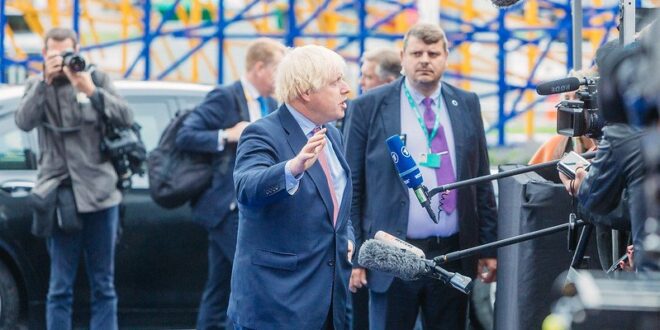Defenders of Boris Johnson are telling mutinous Tory MPs not to focus solely on the dolce vita lifestyle enjoyed in No 10 when the rest of the population was locked up at home. Instead, they ask those who want rid of the Prime Minister to view his achievements more generally, citing his taking Britain out of the EU, winning the general election in 2019, and overseeing the vaccine programme.
Ignore the validity of these claims for the moment and, taking Johnson loyalists at their word, consider his position against the backdrop of British history. It is not premature to do so because, even if he clings on as Prime Minister, his freedom of action will be limited which means that his political heritage is already in place. Important questions requiring an answer include how far he is a one-trick pony who rose to power thanks to his populist nationalism, which was ideally suited to political currents during the era of Brexit? Equally important, how far will his premiership be seen as an aberration rather than as a permanent transformation of British politics?
Boozing and partying by politicians and civil servants who were simultaneously ordering everybody else to live in conditions of semi-siege is grossly hypocritical. But their behaviour was in keeping with the self-indulgence shown by populist nationalist leaders elsewhere in the world. It is always striking how, for all Johnson’s British boosterism, his actions mirror those of populists in the rest of the world.
There are specific reasons why Johnson’s leadership should be tottering a year after his supporters were boasting that he might be in power for a decade. His successes took place while Dominic Cummings was directing his actions and, once he lost his chief adviser, he wobbled from misjudgement to misjudgement. Downing Street increasingly resembled the court of a minor monarch in the 18th century, with consorts and courtiers vying for the king’s ear.
Populist nationalist movements are not new, but in their modern version, they have proved to be the world’s most powerful political force over the past decade.
But they have tended to produce permanent instability – and frequent crises – from the US to Hungary and from Britain to Brazil. This is because populist leaders lead unwieldy coalitions made up of contradictory interests. A good word for these movements is “pluto-populist” with plutocrats and the well-off in uneasy alliance with marginalised victims of globalisation. Donald Trump was absurdly nicknamed “the blue-collar billionaire” by his supporters when he became Republican presidential candidate in 2016.
Johnson’s brand of populism is more muted with its “levelling up” slogan which is still awaiting a much-delayed White Paper spelling out what it means two years after the general election. Business investment is below what it was prior to the referendum and mean real average weekly pay is still lower than in 2007. No wonder red wall Tory MPs are rebellious.
The Johnsonian brand of British nationalism is similarly in trouble. Future historians chronicling his career may point to his role in the 2016 Brexit referendum as the moment when he played a truly decisive role, because without his intervention the vote might have gone the other way. His other achievements are all more dubious: any Tory leader would have won the last general election against a divided Labour Party and credit for the vaccine belongs primarily to the scientists and the NHS, which would have got the support of any British government in power.
Britain has declined as an international power under Johnson, something which was inevitable once Brexit weakened its links to its allies and main trading partners in Europe. Friction with France and Ireland, Britain’s two closest geographical neighbours, has become the norm. The position of England within the British Isles as a whole is less secure than at any time over the last 300 years, with the SNP dominant in Scotland and Sinn Féin likely to become the largest political party in the Irish Republic and Northern Ireland in the next few years.
 Eurasia Press & News
Eurasia Press & News




